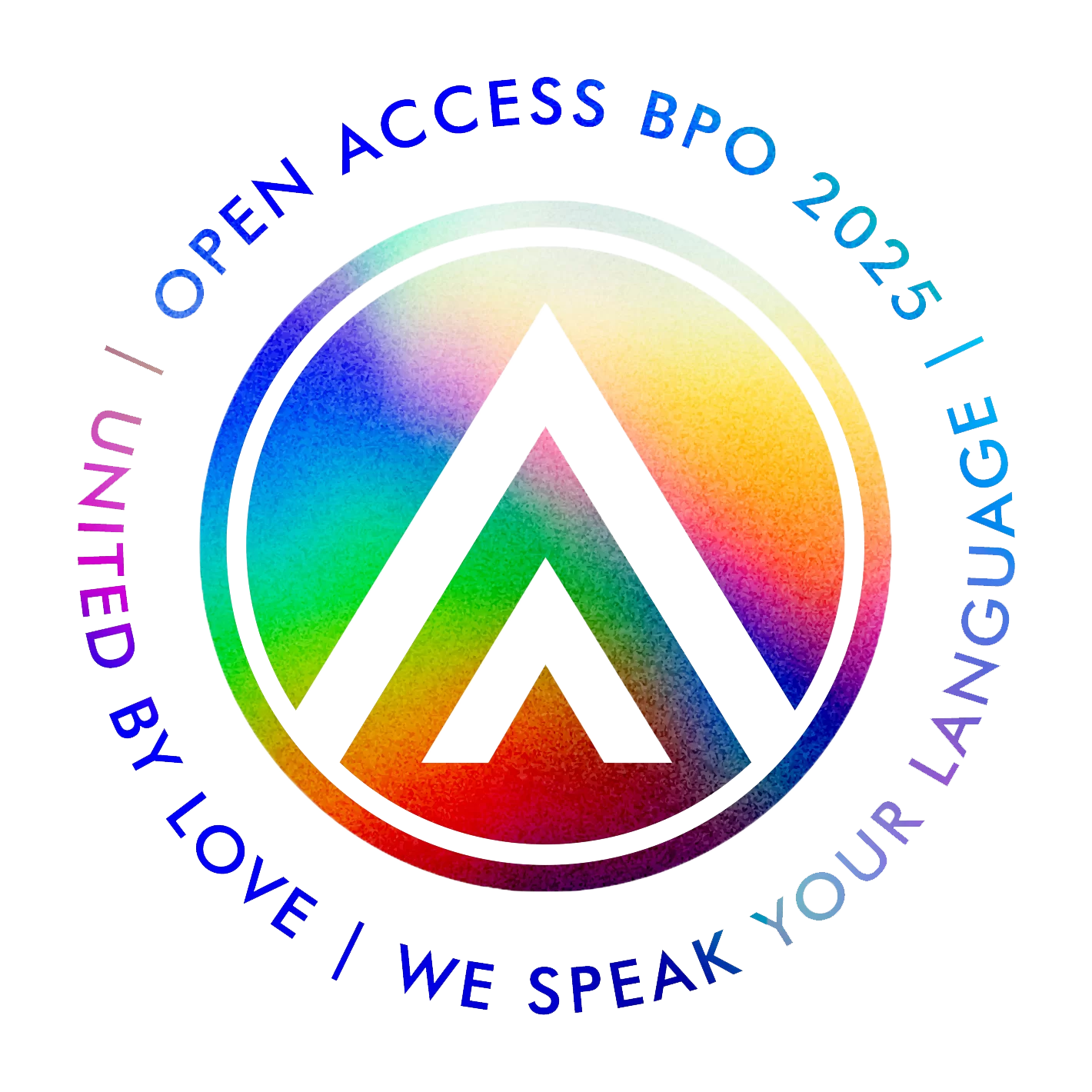Call centers have become linguistically diverse over the years, but achieving this feat requires great cultural competency.
Call centers have evolved into pivotal hubs of interaction, especially now that global customer service has become the norm. The conventional image of call centers as transactional spaces has transformed into a hub of cultural competency.
The driving force behind this transformation? Multilingual services and the importance of cultural awareness.
The Evolution of Call Centers
The wheels of globalization set businesses on paths of expansive growth, traversing borders and embracing new horizons.
Simultaneously, call centers underwent a transformation from being localized contact points to global communication hubs. The demand for effective communication with customers from diverse linguistic and cultural backgrounds brought forth multilingual services.
-
From Generic Scripting to Cultural Competency
In the past, call centers predominantly relied on scripted interactions, a method that proved insufficient for cross-cultural communication. Because of this, cultural competency emerged as a solution, unlocking the potential of multilingual interactions without tethering to fixed scripts.
Cultural competency directly addresses the intricate task of bridging communication gaps arising from cultural diversity. It extends beyond linguistic proficiency, encapsulating an understanding of cultural subtleties, social norms, and nuances in communication styles.
Recognizing the resounding impact of cultural competency, call centers have transitioned beyond being transactional spaces. They have now transformed into dynamic platforms facilitating cross-cultural communication.
Cultural competency demonstrates more than just a business’ desirable traits. It has become an operational necessity that elevates customer interactions, transforming them into substantive and resonant engagements. This approach signifies the acknowledgment that each interaction represents an opportunity to bridge cultural chasms and create a lasting impact.
The Significance of Multilingual Services
Multilingual services are no longer about operational augmentation. Within today’s call center environment, they are mandatory. Their potency lies in the empowerment of businesses to seamlessly cater to the expansive diaspora of their customer base.
The crux of multilingual services lies in their ability to traverse linguistic boundaries. Such services afford customers the comfort of engaging in their native tongues. It’s a resonance that embodies a commitment to flattening the language barriers that often hinder communication.
In global customer service, multilingual services are the conduit between businesses and their diverse clientele. These practices extend a warm invitation to a cross-cultural conversation, an understanding that supersedes geographical confines.
Multilingual services isn’t an arbitrary gesture, either; it’s a deliberate affirmation of the value in every customer interaction. Each interaction unfurls an opportunity to bridge linguistic gaps and kindle authentic connections. These connections demonstrate the call center’s commitment to being a harbinger of understanding.
Cultural Competency: A Cornerstone of Excellence
Central to the mastery of effective multilingual services is cultural competency. It surges beyond the boundaries of linguistic proficiency and looks into understanding cultural landscapes, norms, and subtleties.
At its core, cultural competency refracts the call center’s approach in multiple ways, catering to distinct customer expectations. It enables agents to be cultural chameleons, deftly adapting their stance to align with the unique angles of every interaction.
Incorporating cultural awareness and sensitivity as integral facets, cultural competency assumes its true form. Agents, armed with cultural intelligence, handle complex conversations with a graceful finesse.
Ultimately, this heightened awareness leads to mutual understanding. It’s not just about preventing cultural missteps but also about elevating the very essence of the customer experience. Agents attuned to cultural sensitivities craft interactions that paint each conversation with attunement.
Cultural competency guides call centers toward enhanced customer interactions. It binds the customer and the agent, ensuring that every encounter isn’t just a communication exchange, but an immersive experience.
Example of Cultural Competency at Work
Cultural competency goes beyond avoiding misunderstandings; it significantly enhances the overall customer experience. Consider a scenario where a customer from a collectivist culture seeks assistance. Here, cultural competency takes the lead, guiding the interaction beyond the surface.
An adept agent, armed with cultural awareness, comprehends the complexities of addressing immediate concerns. However, the agent also acknowledges the familial context intertwined with individual needs. This personalized approach surpasses issue resolution, nurturing a connection that’s more than just transactions.
-
Cultural Competency in Customer Service and Engagement
In the context of global customer service, cultural competency goes beyond its practical benefits to become a transformative force. It nurtures an environment where customers feel genuinely recognized and valued, irrespective of geographical boundaries.
Meanwhile, within global customer engagement, cultural competency serves as a guide for harmonious interactions across diverse cultural landscapes. It invites customers into a space where their cultural perspectives aren’t just acknowledged but thoughtfully integrated into every conversation.
Cultural competency’s significance in customer interactions extends beyond tactical application; it underscores a call center’s commitment to fostering an environment where customers are treated as valued participants. This approach ensures interactions transcend the ordinary and become memorable, where transactions evolve into transformational experiences.
Challenges in Nurturing Cultural Competency in Multilingual Call Centers
Effective multilingual services entail embracing the concept of cultural competency—an essential ingredient for bridging linguistic and cultural divides. However, while the rewards are significant, the journey is not without its obstacles.
Let’s explore the key hurdles that call center managers and agents face as they cultivate excellence in customer service:
-
Language Barriers
Effective communication requires overcoming language barriers that can lead to misunderstandings and misinterpretations. Agents must possess strong language skills and utilize translation tools to bridge linguistic gaps. For instance, a grasp of colloquialisms and idiomatic expressions ensures clear communication while avoiding confusion.
-
Cultural Sensitivity
Agents must also recognize cultural nuances and avoid inadvertently offending customers by being culturally sensitive and aware. This involves learning gestures, customs, and taboos that differ across cultures. Agents should approach interactions with an open mind, embracing diversity and demonstrating respect for varying viewpoints.
-
Diverse Communication Styles
Different cultures have distinct communication styles, ranging from direct to indirect, which can affect the tone and effectiveness of conversations. On that note, agents must adeptly switch between styles. They must understand when to use a straightforward approach and when to adopt a more contextual and indirect method.
-
Time Zones
Handling customers across various time zones can lead to scheduling challenges, impacting timely service delivery. Therefore, call centers must implement efficient scheduling systems that ensure customers receive assistance during their local business hours.
-
Contextual Understanding
Effective communication requires grasping the context behind customer inquiries, which can be influenced by cultural factors. Agents must actively listen, ask probing questions, and consider cultural nuances to offer relevant solutions.
-
Cultural Bias
Moreover, agents need to avoid projecting their own cultural biases onto customer interactions, ensuring a neutral and empathetic approach. Cultural awareness training equips agents to recognize and manage unconscious biases, fostering unbiased and objective communication.
-
Personalization
Striking a balance between standardized service procedures and personalized communication can be challenging. To deal with this, agents must harness cultural insights to tailor interactions while adhering to company guidelines. This creates a balance that enhances customer satisfaction.
-
Conflict Resolution
Resolving conflicts while respecting cultural differences requires finesse, as cultural norms shape how conflicts are addressed. Agents should then be equipped with conflict resolution strategies that acknowledge cultural influences and prioritize amicable resolutions.
-
Customer Feedback
Interpreting customer feedback across languages and cultures is crucial for continuous improvement and service refinement. In this regard, agents should possess the ability to analyze feedback through a cultural lens for enhancing future interactions.
-
Workforce Diversity
Managing a diverse agent pool and ensuring they can effectively communicate with customers from various cultures is a logistical hurdle. In that case, call centers must foster a culture of inclusivity, enabling agents to leverage their cultural backgrounds as assets.
-
Cultural Resource Availability
Sourcing cultural references, materials, and information to aid agents can be a time-consuming endeavor. Call centers should, therefore, be proactive in curating and providing a repository of cultural resources. This will help facilitate efficient access to information that supports agents in their interactions.
-
Balance between Efficiency and Empathy
Balancing efficient call handling with the need to provide empathetic and culturally sensitive interactions is an ongoing challenge. Agents must be trained to strike this balance, ensuring timely and effective service without compromising cultural sensitivity.
-
Customer Retention
Maintaining customer loyalty across diverse cultural backgrounds requires understanding and addressing varying retention triggers. To tailor retention strategies accordingly, call centers should analyze customer retention patterns across cultural segments.
The Path Forward for Cultural Competency
Setting foot on the pathway toward cultural competency is a voyage of constant enhancement. This voyage initiates by developing a workforce encompassing a spectrum of cultural backgrounds and linguistic proficiencies.
An instrumental juncture on this expedition involves the integration of technology. Language translation software and cultural repositories, for example, empower agents to provide accurate and contextually pertinent information.
The evolving nature of cultural competency requires a dynamic approach. Continuous training programs keep agents well-versed in the changing landscape of cultural nuances and norms.
Through this training, agents can handle conversations with dexterity that transcends language alone. This linguistic and cultural fluidity creates an environment where customers feel not only understood but also respected.
How Multilingual Call Centers can Improve Cultural Competency
Here are some more ways for multilingual call centers to improve their cultural competency:
-
Diverse Workforce
A diverse workforce mirrors the diversity of customers served. Call centers can actively recruit agents from various cultural backgrounds. The presence of agents who share linguistic and cultural ties with customers can bridge communication gaps and facilitate smoother interactions.
-
Feedback Analysis
Actively soliciting and analyzing customer feedback is another good idea. Multilingual call centers should gather insights from customer interactions to identify cultural pain points and areas for improvement. Analyzing feedback helps call centers tailor their approaches, refine communication strategies, and align services with customers’ cultural expectations.
-
Cultural Competency Metrics
Call centers can establish metrics to measure cultural competency. These metrics could encompass factors such as customer satisfaction scores, agent performance, and the effectiveness of cultural training programs. Regularly tracking these metrics provides valuable insights into the call center’s progress and areas needing further attention.
Conclusion
Multilingual services and cultural competency are no longer optional enhancements; they are now non-negotiable components of exceptional call center operations. They dissolve language barriers, bridge cultural divides, and pave the way for authentic connections.
In a call center, cultural competency means more than words. It means understanding the essence of each customer’s unique cultural background. Moreover, it’s about valuing diversity and demonstrating that irrespective of location or language, every customer’s experience matters.
Through multilingual services and unwavering cultural competency, call centers redefine service excellence. This goes to show that customer service, compassion is a universal language that transcends borders and resonates profoundly with all.
Multilingual outsourcing gives brands the opportunity to create meaningful relationships with their foreign customers. Open Access BPO offers customer experience and back office support in over 30 languages, so you can speak your customers language easily. Contact us today to outsource.
While language is business for call center companies offering multilingual services, it’s not the sole determinant for success.
These companies also need to show deep cultural understanding to effectively reach out to a diverse market.
Customers in different locations are separated by both a common tongue and cultural background. It is therefore a mistake to think that using only the English language would be sufficient, or that the employees’ foreign language capabilities are all it takes to cater to these customers.
Cultural awareness is important to effectively meet the demands of customers whose primary language is not English. For customer service, it enables agents to understand the inherent cultural context of issues, know what values are held dear by customers, and avoid faux pax that may be regarded as offensive or insulting.
The same goes for marketing campaigns carried out by call centers offering multilingual services. By employing specific keyword selections, they can localize the campaigns and make their idea relevant to customers in a particular community. For instance, German-speaking agents know that, while the term “mobile” is used in the UK and “cellphone” in the USA, German customers use “handy” to refer to the portable phone.
Lastly, cultural adaptation also enables a business to come up with innovative ideas fit for a specific culture.
Highlighting the Role of Culture
A call center or business process outsourcing (BPO) company can ensure cultural competency by hiring applicants with deep cultural knowledge and an understanding of the customers’ expectations. It can also provide cultural training spearheaded by native speakers and consistently evaluate the performance of its talents.
Overall, an understanding of cultural diversity is essential for multilingual call center, especially those that provide multilingual servicess. This allows them to understand their customers and thus fulfill requirements specific to their backgrounds.
Multilingual outsourcing gives brands the opportunity to create meaningful relationships with their foreign customers. Open Access BPO offers customer experience and back office support in over 30 languages, so you can speak your customers’ language easily. Contact us to outsource.


